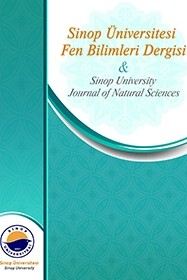ENTEGRE KİRLİLİK ÖNLEME VE KONTROL DİREKTİFİ ve TÜRKİYE’NİN UYUMU
Çevre yönetimi, endüstriyel kirlenme, Entegre kirlilik Önleme ve Kontrol Direktifi, kirlilik önleme, atık minimizasyonu
INTEGRATED POLLUTION PREVENTION AND CONTROL (IPPC) DIRECTIVE AND TURKEY’S COMPLIANCE
industrial pollution, pollution prevention, Environmental management, İntegrated Pollution Prevention and Control Directive, waste minimization,
___
- 1] Erengüç A, 2007. Regulatory Impact Analysıs Of Eu Integrated Pollutıon Preventıon And Control Dırectıve And A Case Study; Iron And Steel Industry, Master Thesis, İstanbul Technical University, Institue of Science and Technology, İstanbul, 133 p.
- [2] Niemczynowicz J, 1994. New Aspects of Urban Drainage and Pollution Reduction Towards Sustainability, Water Science and Technology, 30:269-277.
- [3] Fresner J. Schnitzer H, Gwehenberger G, Planasch M, Brunner C, Taferner K, Mair J, 2007. Practical Experiences With the Implementation of the Consept of Zero Emissions In the Suface Treatment Industry In Austria. Journal of Cleaner Production, 15: 1228-1239.
- [4] Turan T, Bayhan Y K, 2009. Comparing the Protection of Water Resources Politics in European Union and Turkey. Atatürk University Journal of Graduate School of Social Sciences, 13:2:331-340.
- [5] Şenoğlu S, 2006. Formation Of European Union And Turkey Environmental Policies And Examination Of İntegrated Pollution And Preventation Control(IPPC) Directive (Textile İndustry Example), Master Thesis, Çukurova University, Institue of Science and Technology, Bursa, 106 p.
- [6] Republic of Turkey Ministry of Science, Industrial and Technology, 2012. http://anahtar.sanayi.gov.tr/tr/news/proaktif-cevre-yonetim-yaklasimi-eko-verimlilik-temiz-uretim/ [accessed 05.XI.2015]
- [7] Republic of Turkey Ministry of Environment and Forests, 2006. EU Integrated Enviromental Approximation Strategy, Republic of Turkey Ministry of Environment and Forests, Ankara. 82 p.
- [8] Külahlıoğlu D. 2002. European Union Integrated Pollution Prevention and Control Directive and Turkey, Master Thesis, İstanbul Technical University, Institue of Science and Technology, İstanbul, p. 43-45.
- [9] Derilioğlu G. 2007. Evaluating The Legislation On Environmental Policy Of European Union And Current Legislation in Turkey, Master Thesis, Çukurova University, Institue of Science and Technology, Adana, p. 66-69.
- [10] REC 2011. Sustainable Production and Consumption Publications-II, Cleaner Production, Regional Environment Center-REC, Ankara, Turkey, 30 p.
- [11] İZKA TTGV 2012. The Strategy Study of Generalization of the Application of Eco-efficiency (Clean Production) in İzmir, İzmir Development Agency, The Technology Development Foundation of Turkey, İzmir, 105 p.
- ISSN: 2536-4383
- Başlangıç: 2016
- Yayıncı: -
Dimethyl sulfoxide Species Entrapped by Raw and Acid-Activated Sepiolite Framework
Ahmet Tabak, Beytullah Afşin, Bülent Çağlar, Sema Çağlar
Primer Pillerin Geri Dönüşüm Prosesleri Hakkında Genel Değerlendirme
Selçuk YEŞİLTEPE, Mustafa Kelami ŞEŞEN
Ağırlıklı Enerji İçin Bazı Sınırlar
Şerife Büyükköse, Nurşah Mutlu
Endemik Teucrium leucophyllum (Lamiaceae) tohumlarında in vitro çimlendirme çalışmaları
Muhip Hilooğlu, Ersin Yücel, Ali Kandemir, Emel Sözen
İnci TÜNEY KIZILKAYA, Zeliha DEMİREL, Kutsal KESİCİ, Erol KESİCİ, Atakan SUKATAR
YÜKSEK BASINÇLI CNG KOMPRESÖR TASARIMI VE İMALATI
Durdu Karasoy, Ecem Kumandaş, Nihal Ata Tutkun
İnci TÜNEY KIZILKAYA, Zeliha DEMİREL, Kutsal KESİCİ, Erol KESİCİ, Atakan SUKATAR
ENTEGRE KİRLİLİK ÖNLEME VE KONTROL DİREKTİFİ ve TÜRKİYE’NİN UYUMU
Oylum GÖKKURT BAKİ, Muhammet YAKAN
Mühendislik Problemlerinde Boyut Analizi ve Buckingham Pi Teoremi’nin Önemi
